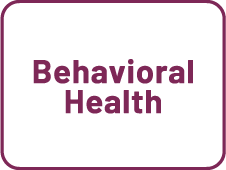As our understanding of health continues to evolve, the distinction between mental and physical health becomes increasingly blurred. This holistic view has paved the way for an integrated behavioral health program, which is transforming the landscape of healthcare by treating the mind and body as one. This approach not only acknowledges the interconnectedness of mental and physical health but actively incorporates mental health services within traditional healthcare settings to promote overall wellness.
The Need for Integration
Historically, mental health and physical health services have operated in silos, often leading to fragmented care that overlooks the complex ways in which these two aspects of health interact. For instance, a person with chronic physical conditions like diabetes or heart disease is at a higher risk of developing mental health disorders such as depression or anxiety. Conversely, mental health conditions can exacerbate physical illness, increase the risk of chronic disease, and make it harder to stick to treatment regimens.
Integrated behavioral health programs aim to close these gaps by offering a coordinated approach to patient care. Such programs involve a range of specialists including psychologists, psychiatrists, counselors, and social workers collaborating closely with primary care physicians, nurses, and other healthcare professionals. This team works together to provide comprehensive care that addresses all aspects of a patient’s health.
Benefits of Integrated Behavioral Health
One of the primary benefits of an integrated behavioral health program is improved patient outcomes. When mental health concerns are addressed alongside physical health issues, patients often experience better overall health outcomes. This can mean fewer hospitalizations, improved chronic disease management, reduced healthcare costs, and higher patient satisfaction.
Moreover, integrating mental health care into primary care settings reduces the stigma associated with seeking mental health treatment. When routine healthcare visits include mental health screenings, patients can discuss these issues more openly and receive help in a familiar, non-judgmental environment.
How It Works
In practice, an integrated behavioral health program might look like this: during a routine check-up, a primary care physician could perform a mental health screening. If the screening indicates a need, the physician could then introduce the patient to a mental health professional right there in the same office. This seamless handoff not only ensures that the patient receives immediate care but also reinforces that mental health is just as important as physical health.
For more complex cases, the approach is equally collaborative. Mental health professionals and medical doctors might create a joint care plan that addresses both the mental and physical aspects of the patient’s condition, such as managing diabetes while treating depression which complicates adherence to dietary and medication guidelines.
Looking ahead, the future of integrated behavioral health programs is promising. With advancements in technology, such as telehealth and electronic health records, coordinating care among different providers has become easier and more efficient. This progress is likely to enhance the scalability of integrated programs, making them more accessible to a broader population.
The shift towards integrated behavioral health is a significant step forward in the evolution of healthcare. By recognizing and addressing the interplay between the mind and the body, these programs not only improve individual patient care but also contribute to a healthier, more holistic approach to wellness across society. For those involved in or considering healthcare, embracing this integrated approach could well be key to leading the charge toward a more effective, empathetic, and comprehensive healthcare system. Contact notMYkid to learn more about our services!




